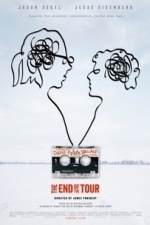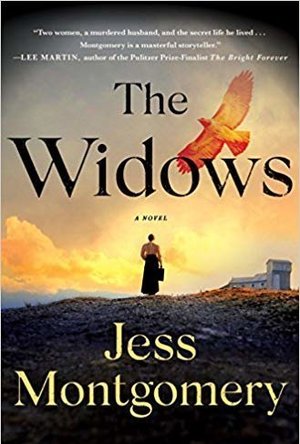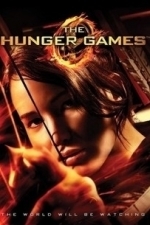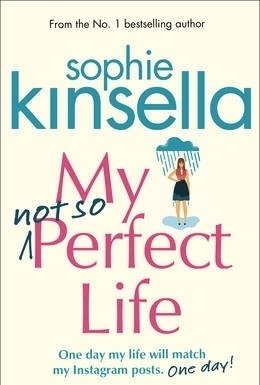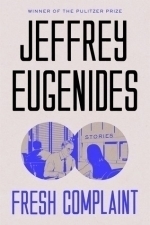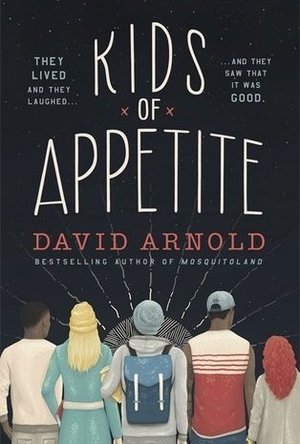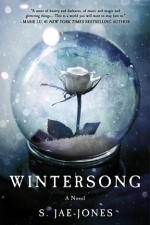Search
Gareth von Kallenbach (980 KP) rated The End Of The Tour (2015) in Movies
Aug 6, 2019
The End of the Tour tells the story of the five-day interview between Rolling Stone reporter and novelist David Lipsky (Jesse Eisenberg) and acclaimed novelist David Foster Wallace (Jason Segel), which took place right after the 1996 publication of Wallace’s groundbreaking epic novel, Infinite Jest. The film is based on Lipsky’s critically acclaimed memoir about this unforgettable encounter, written following Wallace’s 2008 suicide.
So there is the summary. And it tells you what this movie is about. However what that summary does not tell you is the depth of emotion to which both Jason Segel and Jesse Eisenberg deliver in their performances.
Jesse Eisenberg gives a performance that we come to expect from the Oscar nominated actor. Not only can you feel, but you can also and understand his curiosity and jealousy towards Segel’s success. A less successful writer, he wants the notoriety that Segel has. So much so, that he is constantly trying to find the holes in Segel’s persona under the guise of an interview and yet is forced to ponder the things that Segel is saying to him.
Jason Segel’s portrayal of David Foster Wallace is not understated by the word phenomenal. I was skeptical that Segel would not be able to deliver a dramatic performance of this caliber, but I am glad to say I was wrong. He steals every scene he is in and his performance is so deep and thoughtful that Jason Segel himself disappears and we are instead left with a performance of what I will always believe David Foster Wallace was like in real life. This performance is one of the best I have seen this year and I believe he will receive an Oscar nomination for this role. I was fascinated with Segel’s performance that I actually downloaded David Foster Wallace’s book Infinite Jest on my drive home.
Performances aside, this movie is not for everyone. If you are looking for an inactive cinematic experience then this film is not for you. This film makes you think. It is like being a part of a deep conversation with friends trying to make sense of the world. It brings perspective to the society we live in and the loneliness we find ourselves trying to avoid while clinging to meaningless things that bring us simple pleasure. A simple way of living where we go from A to B to C to find meaning, only to obtain those things and then not knowing what we do next. But for those who are looking to escape the mundane summer blockbusters and want to see stellar performances, be sure to check this one out.
So there is the summary. And it tells you what this movie is about. However what that summary does not tell you is the depth of emotion to which both Jason Segel and Jesse Eisenberg deliver in their performances.
Jesse Eisenberg gives a performance that we come to expect from the Oscar nominated actor. Not only can you feel, but you can also and understand his curiosity and jealousy towards Segel’s success. A less successful writer, he wants the notoriety that Segel has. So much so, that he is constantly trying to find the holes in Segel’s persona under the guise of an interview and yet is forced to ponder the things that Segel is saying to him.
Jason Segel’s portrayal of David Foster Wallace is not understated by the word phenomenal. I was skeptical that Segel would not be able to deliver a dramatic performance of this caliber, but I am glad to say I was wrong. He steals every scene he is in and his performance is so deep and thoughtful that Jason Segel himself disappears and we are instead left with a performance of what I will always believe David Foster Wallace was like in real life. This performance is one of the best I have seen this year and I believe he will receive an Oscar nomination for this role. I was fascinated with Segel’s performance that I actually downloaded David Foster Wallace’s book Infinite Jest on my drive home.
Performances aside, this movie is not for everyone. If you are looking for an inactive cinematic experience then this film is not for you. This film makes you think. It is like being a part of a deep conversation with friends trying to make sense of the world. It brings perspective to the society we live in and the loneliness we find ourselves trying to avoid while clinging to meaningless things that bring us simple pleasure. A simple way of living where we go from A to B to C to find meaning, only to obtain those things and then not knowing what we do next. But for those who are looking to escape the mundane summer blockbusters and want to see stellar performances, be sure to check this one out.

Tamil Note Taking Writer Faster Typing Keypad App
Productivity and Utilities
App
The Tamil Note Book app is an amazing application that allows you to take notes in Tamil! This is...
Sassy Brit (97 KP) rated The Widows in Books
Jun 5, 2019
The Widows by Jess Montgomery is inspired by the true story of Ohio’s first female sheriff. The plot delves into how two women fought greed and violence while overcoming the loss of a loved one.
The author noted, “This is a darker and deeper style of writing, much more than my other stories. For example, I examine the Pinkerton men and the violence they used. I read multiple books that talked about how these men would shoot up the striking camps. I put in this book quote by one of the Pinkerton men, ‘A real war, and then, rule of law won’t matter. Those miners who resist, why, we’ll put ‘em down like rabid dogs.’”
The protagonists Lily and Marvena are based on the real-life historical figures of Maude Collins, the first female sheriff in Ohio, and Mother Jones, the famous activist and labor organizer. Sheriff Daniel Ross, the husband of Lily is murdered and no one knows by whom. Those powerful in the town want to pin it on a coal miner, Marvena’s brother. She has something in common with Lily since she also lost her husband, but to a coal mining accident. Because the mine owners think she will be easy to control, Lily is appointed sheriff pending the next election. But having a mind of her own and a sense of justice she partners with Marvena to find the elusive murderer and Marvena’s missing daughter.
“I wrote both Lily and Marvena as tough. Lily is sensitive but is also a protector who wants to support her community. She keeps her emotions close to her heart. Marvena is fierce and persistent, but also has a tender streak. Although both women were wary of each other at first, they have a common goal to find out what happened. They end up with a strong friendship and recognize that each is balancing their own demons.”
Readers might be curious as to what is real and what is fiction. Montgomery commented, “In real life Collins had five children, and the person who killed her husband was known. I decided it would be interesting to have Lily take the sheriff position to find out who killed her husband. The similarity is that both women lost their husbands in the line of duty, both were appointed sheriff, and both were elected. The differences: Lily is eight years younger than Maude during that time period and she had only had two children.”
Historical facts are intertwined in this novel that also has strong female characters and an intriguing mystery. Readers get a glimpse into the 1920s-coal mining town in Appalachian Ohio as the author examines women’s rights, prohibition, and the life of a coal miner.
The author noted, “This is a darker and deeper style of writing, much more than my other stories. For example, I examine the Pinkerton men and the violence they used. I read multiple books that talked about how these men would shoot up the striking camps. I put in this book quote by one of the Pinkerton men, ‘A real war, and then, rule of law won’t matter. Those miners who resist, why, we’ll put ‘em down like rabid dogs.’”
The protagonists Lily and Marvena are based on the real-life historical figures of Maude Collins, the first female sheriff in Ohio, and Mother Jones, the famous activist and labor organizer. Sheriff Daniel Ross, the husband of Lily is murdered and no one knows by whom. Those powerful in the town want to pin it on a coal miner, Marvena’s brother. She has something in common with Lily since she also lost her husband, but to a coal mining accident. Because the mine owners think she will be easy to control, Lily is appointed sheriff pending the next election. But having a mind of her own and a sense of justice she partners with Marvena to find the elusive murderer and Marvena’s missing daughter.
“I wrote both Lily and Marvena as tough. Lily is sensitive but is also a protector who wants to support her community. She keeps her emotions close to her heart. Marvena is fierce and persistent, but also has a tender streak. Although both women were wary of each other at first, they have a common goal to find out what happened. They end up with a strong friendship and recognize that each is balancing their own demons.”
Readers might be curious as to what is real and what is fiction. Montgomery commented, “In real life Collins had five children, and the person who killed her husband was known. I decided it would be interesting to have Lily take the sheriff position to find out who killed her husband. The similarity is that both women lost their husbands in the line of duty, both were appointed sheriff, and both were elected. The differences: Lily is eight years younger than Maude during that time period and she had only had two children.”
Historical facts are intertwined in this novel that also has strong female characters and an intriguing mystery. Readers get a glimpse into the 1920s-coal mining town in Appalachian Ohio as the author examines women’s rights, prohibition, and the life of a coal miner.
Mike Wilder (20 KP) rated The Hunger Games (2012) in Movies
May 30, 2018
Let the games begin!
Contains spoilers, click to show
This was an interesting film, the marketing was excellent and I wanted to see it even though I knew almost nothing about it. I knew it was based upon a novel but I hadn't read it. Jennifer Lawrence plays the lead of Katniss Everdeen and in my review of X-Men: First Class, I put her as the stand out performance of the film. I could see that she had something special, but would she be up to the task of carrying the whole film? Would my prediction about her be right?
The film is about a girl Katniss Everdeen (Jennifer Lawrence) who volunteers to fight in the Hunger Games taking the place of her younger sister. Competitors in the games are forced to fight to the death until only one is left standing.
There have been many films about people hunting people from Hard Target (1993) with Jean-Claude Van Damme to Surviving the Game (1994) staring Ice-T. The one that is most similar in style is the Japanese classic Battle Royale (2000). It also has youths forced to fight to the death, but where that film was purely designed for adults to shock and horrify you, Hunger Games is based on a book for teenagers and so is the film.
This was a very good film and for the most part it was beautifully shot. The actors in this are perfectly cast which includes Jennifer Lawrence, Stanley Tucci, Liam Hemsworth, Josh Hutcherson, Woody Harrelson, Wes Bentley, Paula Malcomson, Amandla Stenberg & Elizabeth Banks. Once again Jennifer Lawrence is outstanding, this time as the lead. Her portrayal of Katniss Everdeen is captivating. She has a great skill in drawing the audience in and making a connection with them. As with her performance in X-Men: First Class, her skill in portraying emotions comes over amazingly.
The film is a great visual treat, with a good story. However as good as the film is, the film makers failed in the transition from book to screen.
Minor Spoilers The book is set from the perspective of Katniss who is telling the story. However this is not the case with the film. It is just a story. The film really loses a lot from changing the format. With the book you get a lot of the history of the Hunger Games and you understand what they are all about. With the film this is missed out and barely covered in a small written intro. All the film needed to do was to have Katniss telling the story at least up until the point where her sister is chosen. Her giving a background narrative over the start of the film would have made a perfect introduction. The way it was done left me as a viewer without the necessary information I felt was needed to create an emotional connection to the characters and the story. Fortunately for me I started to read the book the night before the viewing as I had read that the film was a little vague during the opening scenes. This gave me the background that unfortunately the viewers of the film wouldn't necessarily have.
Minor Spoilers end The intentionally shaky camera shots get a bit too much at times and the lack of blood and carnage is a little too unbelievable and while overall this is a good film, it could have been a great film. If you have already read the book you should enjoy the film more than if you haven't.
8 out of 10 if you haven't read the book 9 out of 10 if you have read the book.
The film is about a girl Katniss Everdeen (Jennifer Lawrence) who volunteers to fight in the Hunger Games taking the place of her younger sister. Competitors in the games are forced to fight to the death until only one is left standing.
There have been many films about people hunting people from Hard Target (1993) with Jean-Claude Van Damme to Surviving the Game (1994) staring Ice-T. The one that is most similar in style is the Japanese classic Battle Royale (2000). It also has youths forced to fight to the death, but where that film was purely designed for adults to shock and horrify you, Hunger Games is based on a book for teenagers and so is the film.
This was a very good film and for the most part it was beautifully shot. The actors in this are perfectly cast which includes Jennifer Lawrence, Stanley Tucci, Liam Hemsworth, Josh Hutcherson, Woody Harrelson, Wes Bentley, Paula Malcomson, Amandla Stenberg & Elizabeth Banks. Once again Jennifer Lawrence is outstanding, this time as the lead. Her portrayal of Katniss Everdeen is captivating. She has a great skill in drawing the audience in and making a connection with them. As with her performance in X-Men: First Class, her skill in portraying emotions comes over amazingly.
The film is a great visual treat, with a good story. However as good as the film is, the film makers failed in the transition from book to screen.
Minor Spoilers The book is set from the perspective of Katniss who is telling the story. However this is not the case with the film. It is just a story. The film really loses a lot from changing the format. With the book you get a lot of the history of the Hunger Games and you understand what they are all about. With the film this is missed out and barely covered in a small written intro. All the film needed to do was to have Katniss telling the story at least up until the point where her sister is chosen. Her giving a background narrative over the start of the film would have made a perfect introduction. The way it was done left me as a viewer without the necessary information I felt was needed to create an emotional connection to the characters and the story. Fortunately for me I started to read the book the night before the viewing as I had read that the film was a little vague during the opening scenes. This gave me the background that unfortunately the viewers of the film wouldn't necessarily have.
Minor Spoilers end The intentionally shaky camera shots get a bit too much at times and the lack of blood and carnage is a little too unbelievable and while overall this is a good film, it could have been a great film. If you have already read the book you should enjoy the film more than if you haven't.
8 out of 10 if you haven't read the book 9 out of 10 if you have read the book.
Kristy H (1252 KP) rated My Not So Perfect Life: A Novel in Books
Feb 1, 2018
Katie Brenner is doing her best to make it (and fake it) in London. After all, moving to London from her village town in Somerset has always been Katie's dream. But, if Katie's really honest--and not just posting glamorous-but fake-pictures on her Instagram--her life isn't all she'd hoped it be. Her commute is horrendous, and she shares a minuscule flat with two nightmare flatmates. Her job in branding is what Katie always wanted, but she's stuck at the bottom rung of the office ladder. This means she's constantly abused by her beautiful, brilliant boss, Demeter--and that's when she even remember Katie's name. Just when Katie thinks she's making headway: she's attending some meetings at work and sharing ideas, she's invited to drinks with co-workers, and she's met (and felt sparks with) a handsome co-worker, she's fired. Before she knows it, Katie finds herself back on her family farm, helping her dad and stepmom start a glamping business (yes, glamping; surprisingly, this works in the plot). It's far from the dreamy, perfect London life she always envisioned.
I'm not a Sophie Kinsella disciple (I haven't even read the Shopaholic series, don't kill me), but this book was so popular among my Goodreads friends that I couldn't help but pick it up. <i>It's certainly a cute, entertaining read</i>, based mainly on the strength of her main character.
There's something about Katie. She can be irritating, but she's gutsy and smart. She has dreams and goals, and she truly wants to achieve them. She's also insightful and kind. You can't help but be drawn to her and root for her character. It also helps that she's not spoiled, like so many of her co-workers and the people she encounters. While the book may play on the "rich" versus "poor" dichotomy a bit much, it's clear that Katie is fairly grounded, and you like her all the more for it.
The book certainly has some comedic moments, which I wasn't completely expecting, and Katie even has a bit of a dry wit. Things definitely move along in a bit of a cliched fashion sometimes, with Katie's realizations about life coming a tad too easily at moments. Still, there's a little twist in the plot that I didn't see coming that engages you and keeps the last quarter of the novel moving quite briskly.
Overall, the book winds up all its loose ends way too easily, but, of course, you really wouldn't have it any other way. I found myself grinning goofily in a few parts, because I'm totally a sucker for stories like these sometimes. Katie is endearing, her romance is fun, and the plot moves quickly and easily. This was an enjoyable, breezy read, and I'm glad I picked it up. 3.5 stars.
<center><a href="http://justacatandabookatherside.blogspot.com/">Blog</a>; ~ <a href="https://twitter.com/mwcmoto">Twitter</a>; ~ <a href="https://www.facebook.com/justacatandabook/">Facebook</a>; ~ <a href="https://plus.google.com/u/0/+KristyHamiltonbooks">Google+</a></center>;
I'm not a Sophie Kinsella disciple (I haven't even read the Shopaholic series, don't kill me), but this book was so popular among my Goodreads friends that I couldn't help but pick it up. <i>It's certainly a cute, entertaining read</i>, based mainly on the strength of her main character.
There's something about Katie. She can be irritating, but she's gutsy and smart. She has dreams and goals, and she truly wants to achieve them. She's also insightful and kind. You can't help but be drawn to her and root for her character. It also helps that she's not spoiled, like so many of her co-workers and the people she encounters. While the book may play on the "rich" versus "poor" dichotomy a bit much, it's clear that Katie is fairly grounded, and you like her all the more for it.
The book certainly has some comedic moments, which I wasn't completely expecting, and Katie even has a bit of a dry wit. Things definitely move along in a bit of a cliched fashion sometimes, with Katie's realizations about life coming a tad too easily at moments. Still, there's a little twist in the plot that I didn't see coming that engages you and keeps the last quarter of the novel moving quite briskly.
Overall, the book winds up all its loose ends way too easily, but, of course, you really wouldn't have it any other way. I found myself grinning goofily in a few parts, because I'm totally a sucker for stories like these sometimes. Katie is endearing, her romance is fun, and the plot moves quickly and easily. This was an enjoyable, breezy read, and I'm glad I picked it up. 3.5 stars.
<center><a href="http://justacatandabookatherside.blogspot.com/">Blog</a>; ~ <a href="https://twitter.com/mwcmoto">Twitter</a>; ~ <a href="https://www.facebook.com/justacatandabook/">Facebook</a>; ~ <a href="https://plus.google.com/u/0/+KristyHamiltonbooks">Google+</a></center>;
Kristy H (1252 KP) rated Fresh Complaint in Books
Jan 10, 2018
Jeffrey Eugenides' short story collection features a variety of stories written across the course of his career, many featured earlier in various publications in previous forms. From the sperm switching antics of "Baster" to the complications of nationality and marriage in "Fresh Complaint" to money and morality in "Great Experiment," we're treated to Eugenides' usual excellent writing and perspective on characters and life.
I often skip story collections, as I tend to feel a loss with them, as if the tale is unfinished, and I just want more details about each character and their motivations and end-state. I picked up FRESH COMPLAINT based solely on my love for Eugenides (Middlesex is an all-time favorite). I won't lie: I still felt that same unfinished feeling at the end of most of the stories. Clearly I just am meant more for long-form fiction. I also hadn't realized when I picked up the book that most of the stories were previously published, but luckily I am not usually reading The New Yorker and such, so I hadn't come across any of these previously.
One of the most exciting discoveries for me was, upon completing "Baster," confirming that it was indeed the premise for the silly film "The Switch" with Jason Bateman and Jennifer Aniston that is an incredibly guilty pleasure of mine. The story differs from the film, but you can clearly see how it's the base, and it's quite enjoyable.
Another favorite of mine was "Fresh Complaint," the final story in the collection, and clearly where it gets its title. We meet a young woman, Prakrtri, who is struggling with the fact that her family is trying to arrange a marriage for her, and a college professor who is traveling for work. How their paths cross is quite interesting. It's detailed, touching, and yet disturbing.
My other favorite was "Great Experiment" featuring an editor, Kendall, in his mid-thirties. He's comparing himself (unfavorably) to his peers, as he struggles financially in his job and resentfully watches his wealthy boss live well while not even providing Kendall health insurance. The story takes an interesting turn, and, as with much of Eugenides work, seems to have a greater message for us.
Overall, I didn't enjoy this as much as an Eugenides novel, because there just isn't the time to fall for his nuanced characters. I still enjoyed many of the stories and realize I probably gravitated toward "Fresh Complaint" and "Great Experiment" because they were some of the longer tales in the collection. If you like Eugenides, you may want to pick up this collection (provided you haven't already read the stories elsewhere). If you haven't read him in any form, go find Middlesex instead. 3.5 stars.
I often skip story collections, as I tend to feel a loss with them, as if the tale is unfinished, and I just want more details about each character and their motivations and end-state. I picked up FRESH COMPLAINT based solely on my love for Eugenides (Middlesex is an all-time favorite). I won't lie: I still felt that same unfinished feeling at the end of most of the stories. Clearly I just am meant more for long-form fiction. I also hadn't realized when I picked up the book that most of the stories were previously published, but luckily I am not usually reading The New Yorker and such, so I hadn't come across any of these previously.
One of the most exciting discoveries for me was, upon completing "Baster," confirming that it was indeed the premise for the silly film "The Switch" with Jason Bateman and Jennifer Aniston that is an incredibly guilty pleasure of mine. The story differs from the film, but you can clearly see how it's the base, and it's quite enjoyable.
Another favorite of mine was "Fresh Complaint," the final story in the collection, and clearly where it gets its title. We meet a young woman, Prakrtri, who is struggling with the fact that her family is trying to arrange a marriage for her, and a college professor who is traveling for work. How their paths cross is quite interesting. It's detailed, touching, and yet disturbing.
My other favorite was "Great Experiment" featuring an editor, Kendall, in his mid-thirties. He's comparing himself (unfavorably) to his peers, as he struggles financially in his job and resentfully watches his wealthy boss live well while not even providing Kendall health insurance. The story takes an interesting turn, and, as with much of Eugenides work, seems to have a greater message for us.
Overall, I didn't enjoy this as much as an Eugenides novel, because there just isn't the time to fall for his nuanced characters. I still enjoyed many of the stories and realize I probably gravitated toward "Fresh Complaint" and "Great Experiment" because they were some of the longer tales in the collection. If you like Eugenides, you may want to pick up this collection (provided you haven't already read the stories elsewhere). If you haven't read him in any form, go find Middlesex instead. 3.5 stars.
Hazel (1853 KP) rated Kids of Appetite in Books
Dec 14, 2018
<i>This ARC was provided by the publisher via NetGalley in exchange for an honest review
They lived and they laughed and they saw that it was good.</i>
<i>Mosquitoland </i>was the best book I read last year (2015) and I was excited to discover what David Arnold would write next. I approached<i> Kids of Appetite</i> with mild trepidation; what if it did not live up to my expectations? Need not have worried – it was brilliant. Dubbed a “tragicomedy” <i>Kids of Appetite</i> is a combination of realistic, heartbreaking experiences with intellectual humour.
The book opens mid interview at a local police station where two teenagers, Vic and Mad, are being questioned about a murder their friend has supposedly committed. From there, the story backtracks a week and proceeds to bring the reader up to date. It all begins with Vic running away from home, distancing himself from his mother and her new partner. By chance, a coincidence – a bump, Vic would say – he is found by Mad who introduces him to a small group of homeless friends. Vic may not have packed in preparation for life on the streets – or in a greenhouse as it turns out – however he did grab the urn containing his late father’s ashes before racing out of the house. Along with the urn is a letter containing cryptic clues that lead to various locations that Vic’s father wished for his ashes to be scattered. He, along with his new found friends; make it a mission to put his father to rest.
It is not possible to label the general theme of the book. <i>Kids of Appetite</i> is a story full of stories. Each character has their own past, something that led them to the situation they find themselves in now. The group consists of five members – once Vic has been accepted. Baz, at age twenty-seven, is clearly the leader: responsible, caring, and fatherly – until accused of murder. Seven years younger is Zuz, Baz’s mute brother, and finally Coco, an eleven year old with the mouth of a foul old lady. It is Coco, amongst all her swearing and hilarious misuse of words, that coins the name <i>Kids of Appetite, KOA</i> for short, a play on words: they are not solely in want of food, they hunger for life.
Initially it would appear that the main focus will be on Vic: his father’s death, his mother’s new partner, Moebius (facial paralysis) – a syndrome that results in a lot of bullying and discrimination – and, of course, his flight from home. However the remaining members of <i>KOA </i>equally contribute to the overall narrative. Mad, like Vic, knows what it is like to lose a father. Unfortunately she also knows what it is like to lose a mother. Her life since the fateful car crash that left her and orphan has been full of abuse and uncertainty. Baz and Zuz, on the other hand, have escaped a traumatizing childhood in the midst of the Congo Civil War.
Similarly with <i>Mosquitoland</i>, Arnold’s second book is full of intellectual knowledge and humour complete with references to highbrow material. Vic is obsessed with an operatic song and deeply interested in abstract art, particularly Matisse. He pulls the artist’s work apart in search of meaning and relatable truths of life. Like Vic, Mad has a particular song she draws comfort from. The lyrics help her make sense of the world around her, and produce her own manifesto – Madifesto, rather. She is particularly fascinated by S E Hinton’s <i>The Outsiders</i> – a book I have not read, but am obviously going to now. With in-depth theories purloined from her favourite novel, she encourages and advises those around her.
The murder investigation is evidently another key point of the book. I do not want to say too much on the matter as it would not be fair to give the ending away. Be reassured that<i> Kids of Appetite</i> is not a thriller, crime or horror novel; it is the events and dialogue leading up to the conclusion that make up the greatest parts of the story.
It is essentially the characters that make <i>Kids of Appetite</i> such a fantastic work of fiction. Their background stories are all based on real life experiences of many people throughout the world, but it is their opinion of life, their terminology, and their reckless enthusiasm that really impacts the reader. <i>Kids of Appetite</i> is a book to be read over and over again. So many phrases can be lifted and quoted to explain our own lives and feelings. In fact, the entire novel is one big quote to sum up life itself. Although there are so many themes, stories and ideas, there is one clear message. Let go. Let go of the past. Let go of the things that hold you back. For Vic and Mad it is the death of their parents; for Coco it is abandonment; and Baz and Zuz learn to let go of their violent childhood.
David Arnold is an extremely talented author, seamlessly flowing from one notion to another, whilst sweeping the reader into a sea of pure emotion. He may over use the word “ergo” and have an unconventional penchant for ellipses, but that only adds to the uniqueness of the writing. There may be an excessive amount of expletives, however that is overshadowed by the pure genius of the story itself. <i>Kids of Appetite</i> is a book I want to recommend to all. The blurb likens it to authors Rainbow Rowell and Jennifer Niven – I would like to throw John Green into the mix – and should appeal to many Young Adult readers. I could write forever about this book, but I would rather you go and read it yourself. And whilst you read, remember:
<i>They lived and they laughed and they saw that it was good. </i>
They lived and they laughed and they saw that it was good.</i>
<i>Mosquitoland </i>was the best book I read last year (2015) and I was excited to discover what David Arnold would write next. I approached<i> Kids of Appetite</i> with mild trepidation; what if it did not live up to my expectations? Need not have worried – it was brilliant. Dubbed a “tragicomedy” <i>Kids of Appetite</i> is a combination of realistic, heartbreaking experiences with intellectual humour.
The book opens mid interview at a local police station where two teenagers, Vic and Mad, are being questioned about a murder their friend has supposedly committed. From there, the story backtracks a week and proceeds to bring the reader up to date. It all begins with Vic running away from home, distancing himself from his mother and her new partner. By chance, a coincidence – a bump, Vic would say – he is found by Mad who introduces him to a small group of homeless friends. Vic may not have packed in preparation for life on the streets – or in a greenhouse as it turns out – however he did grab the urn containing his late father’s ashes before racing out of the house. Along with the urn is a letter containing cryptic clues that lead to various locations that Vic’s father wished for his ashes to be scattered. He, along with his new found friends; make it a mission to put his father to rest.
It is not possible to label the general theme of the book. <i>Kids of Appetite</i> is a story full of stories. Each character has their own past, something that led them to the situation they find themselves in now. The group consists of five members – once Vic has been accepted. Baz, at age twenty-seven, is clearly the leader: responsible, caring, and fatherly – until accused of murder. Seven years younger is Zuz, Baz’s mute brother, and finally Coco, an eleven year old with the mouth of a foul old lady. It is Coco, amongst all her swearing and hilarious misuse of words, that coins the name <i>Kids of Appetite, KOA</i> for short, a play on words: they are not solely in want of food, they hunger for life.
Initially it would appear that the main focus will be on Vic: his father’s death, his mother’s new partner, Moebius (facial paralysis) – a syndrome that results in a lot of bullying and discrimination – and, of course, his flight from home. However the remaining members of <i>KOA </i>equally contribute to the overall narrative. Mad, like Vic, knows what it is like to lose a father. Unfortunately she also knows what it is like to lose a mother. Her life since the fateful car crash that left her and orphan has been full of abuse and uncertainty. Baz and Zuz, on the other hand, have escaped a traumatizing childhood in the midst of the Congo Civil War.
Similarly with <i>Mosquitoland</i>, Arnold’s second book is full of intellectual knowledge and humour complete with references to highbrow material. Vic is obsessed with an operatic song and deeply interested in abstract art, particularly Matisse. He pulls the artist’s work apart in search of meaning and relatable truths of life. Like Vic, Mad has a particular song she draws comfort from. The lyrics help her make sense of the world around her, and produce her own manifesto – Madifesto, rather. She is particularly fascinated by S E Hinton’s <i>The Outsiders</i> – a book I have not read, but am obviously going to now. With in-depth theories purloined from her favourite novel, she encourages and advises those around her.
The murder investigation is evidently another key point of the book. I do not want to say too much on the matter as it would not be fair to give the ending away. Be reassured that<i> Kids of Appetite</i> is not a thriller, crime or horror novel; it is the events and dialogue leading up to the conclusion that make up the greatest parts of the story.
It is essentially the characters that make <i>Kids of Appetite</i> such a fantastic work of fiction. Their background stories are all based on real life experiences of many people throughout the world, but it is their opinion of life, their terminology, and their reckless enthusiasm that really impacts the reader. <i>Kids of Appetite</i> is a book to be read over and over again. So many phrases can be lifted and quoted to explain our own lives and feelings. In fact, the entire novel is one big quote to sum up life itself. Although there are so many themes, stories and ideas, there is one clear message. Let go. Let go of the past. Let go of the things that hold you back. For Vic and Mad it is the death of their parents; for Coco it is abandonment; and Baz and Zuz learn to let go of their violent childhood.
David Arnold is an extremely talented author, seamlessly flowing from one notion to another, whilst sweeping the reader into a sea of pure emotion. He may over use the word “ergo” and have an unconventional penchant for ellipses, but that only adds to the uniqueness of the writing. There may be an excessive amount of expletives, however that is overshadowed by the pure genius of the story itself. <i>Kids of Appetite</i> is a book I want to recommend to all. The blurb likens it to authors Rainbow Rowell and Jennifer Niven – I would like to throw John Green into the mix – and should appeal to many Young Adult readers. I could write forever about this book, but I would rather you go and read it yourself. And whilst you read, remember:
<i>They lived and they laughed and they saw that it was good. </i>
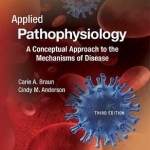
Applied Pathophysiology: A Conceptual Approach to the Mechanisms of Disease
Carie A. Braun and Cindy M. Anderson
Book
Emphasizing application of knowledge, active learning strategies, critical thinking, and...
Kyera (8 KP) rated Wintersong in Books
Jan 31, 2018
Wintersong is a fairytale re-telling based upon the German poem Der Erlkonig and stories of the Goblin King. The author takes a relatively short poem and breathes life into it, translating the dark words into an entire world. Liesl has heard tales of the Goblin King from her grandmother since she was a small child. Even played make-believe in the Goblin Grove with her Goblin King, but as she grew older she lost her faith in the old stories. Even her brother and sister seemed not to heed the old woman’s warnings. She warned Liesl that she must protect both siblings - she would be faced with a choice and mustn’t choose wrong.
This dire warning and her later choices set her on a journey to the Underworld. It is dark, earthy and primal, full of creatures that Liesl does not understand or trust. The land itself is well-described and forms itself within the reader’s mind. Though you would never hope to call it home, it has its own ancient and crude form of beauty.
The characters are unique, although generally not faceted or well-developed in their personalities. Perhaps our main character just does not know them as well as she believes, for her view is quite flat. Her sister, Kathe is beautiful and cares only about similarly pretty and frivolous things. Her brother, Josef is a talented musician who fears his music is a “gift” from the Devil. Her grandmother is superstitious, her mother hard-working and aloof, and her father a drunk. Sadly, we don’t get to see or experience any depth of personality, nor are they given the chance to develop over the course of the novel. As our main character is in the Underworld, the lack of development is understandable which is why I wish they were more fleshed out initially.
Liesl herself is a strange mix of traits with her love of music and composition, intense lack of confidence and anger stemming from her belief that she is ugly and unwanted. Her choices are both selfish and selfless. She is a mass of contradictions and broken beliefs. While she is an interesting character, I don’t find her to be particularly relatable. I didn’t connect with any of the characters in the novel, although I enjoyed the story itself. I’m sure there are others who would find similarities between themselves and one of the characters, making this book more impactful.
Finally, the Goblin King himself – who seems to be like two people in one. At times, we see the younger, more open man that he was and could be again while at others the cold, quick to anger Trickster of the Underworld is at the forefront. More intriguing than his present is his story, you wonder how did he become the Erlkonig? For he is not the first, nor shall he be the last. He is more human than his subjects and thus this difference is what fascinated me. I wanted that story, more than him demanding Liesl in her “entire” and her being unable to give of herself, fully, yet.
It was an interesting story even though I didn’t particularly care for the characters. I recommend this book for older young adult/teen readers who enjoy fantasy and fairytale books. The writing is very poetic and beautifully descriptive. I don’t regret reading this book, but I also wouldn’t personally go out and buy a physical copy of it for my shelf.
This dire warning and her later choices set her on a journey to the Underworld. It is dark, earthy and primal, full of creatures that Liesl does not understand or trust. The land itself is well-described and forms itself within the reader’s mind. Though you would never hope to call it home, it has its own ancient and crude form of beauty.
The characters are unique, although generally not faceted or well-developed in their personalities. Perhaps our main character just does not know them as well as she believes, for her view is quite flat. Her sister, Kathe is beautiful and cares only about similarly pretty and frivolous things. Her brother, Josef is a talented musician who fears his music is a “gift” from the Devil. Her grandmother is superstitious, her mother hard-working and aloof, and her father a drunk. Sadly, we don’t get to see or experience any depth of personality, nor are they given the chance to develop over the course of the novel. As our main character is in the Underworld, the lack of development is understandable which is why I wish they were more fleshed out initially.
Liesl herself is a strange mix of traits with her love of music and composition, intense lack of confidence and anger stemming from her belief that she is ugly and unwanted. Her choices are both selfish and selfless. She is a mass of contradictions and broken beliefs. While she is an interesting character, I don’t find her to be particularly relatable. I didn’t connect with any of the characters in the novel, although I enjoyed the story itself. I’m sure there are others who would find similarities between themselves and one of the characters, making this book more impactful.
Finally, the Goblin King himself – who seems to be like two people in one. At times, we see the younger, more open man that he was and could be again while at others the cold, quick to anger Trickster of the Underworld is at the forefront. More intriguing than his present is his story, you wonder how did he become the Erlkonig? For he is not the first, nor shall he be the last. He is more human than his subjects and thus this difference is what fascinated me. I wanted that story, more than him demanding Liesl in her “entire” and her being unable to give of herself, fully, yet.
It was an interesting story even though I didn’t particularly care for the characters. I recommend this book for older young adult/teen readers who enjoy fantasy and fairytale books. The writing is very poetic and beautifully descriptive. I don’t regret reading this book, but I also wouldn’t personally go out and buy a physical copy of it for my shelf.
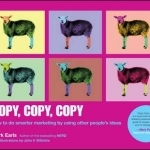
Copy, Copy, Copy: How to Do Smarter Marketing by Using Other People's Ideas
Mark Earls and John V. Willshire
Book
THE #1 HACK FOR SMARTER MARKETING We all want new answers and new solutions for the very real and...
